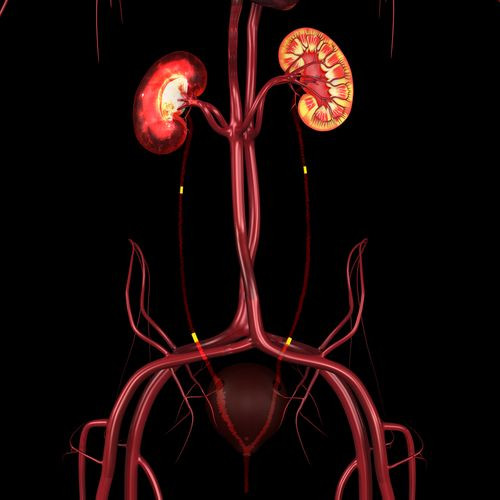Organ Transplant's Problem In America: 30 Years Since The National Organ Transplant Act Was Passed

Every day 20 to 30 people die while waiting for an organ donation in America. Meanwhile, there is a long list of people on a waiting list to donate their organs in Iran. The founder and president of Stop Organ Trafficking Now and the Center for Ethical Solutions Dr. Sigrid Fry-Revere, traveled to Iran for two months to reveal the innards of the only legal and regulated organ transplant market in the world, ultimately becoming the first country to effectively solve its kidney shortage.
Kidney shortages make up 84 percent of all the organ demands in America, and with our country’s current discouraging hurdles put into place for those willing to donate their organs, it’s no surprise there is a supply shortage here. Altruistic approaches to the problem are quickly deflated once a potential donor hits the wall beyond reasoning, which racks up a bill of roughly $5,000 per kidney donation and costs them another six weeks out of work. The incentives for donating just aren’t there and Fry-Revere says we don’t need to create a buyer-seller market for organs, but instead just a way to make sure those who want to donate can break even and aren’t burdened with hefty medical bills.
“If we just covered people’s funds to donate, it would increase the flow of donors significantly and this is not creating a market for organ donations,” Fry-Revere told Medical Daily. Fry-Revere just gave a TEDMED talk to be published online in the next coming months, discussing solving the organ shortage, which reviews the flaws and possible futures for the organ shortage solution and how to approach the donation process in America. “A market is not the way to go. I don’t want to copy the Iranian model, but we have created a model where only the rich can donate.”
When the National Organ Transplant Act was put into place by the Department of Health and Human Services in 1984, it established a clear ruling on the property rights for a human corpse. At the time, it was a great idea because deceased organ donation was able to cover the demand of 10,000 people on the organ waiting list, but because the demand grew exponentially, there are now over 121,000 in line. Even if all of the deceased donated their organs it would still not be enough to cover the current organ shortage, which is, in part, because of the obesity epidemic. Diabetes and hypertension are the top two causes of renal failure, which is the failure of your kidney system, and both conditions are caused by obesity, which plagues more than a third of Americans today.
Fry-Revere has been on the Hill for four days pushing the solution Stop Organ Trafficking Now has come up with using a debit card. A patient can typically survive for four to five years on dialysis, a treatment used when the kidneys begin to fail, filtering harmful substances from the blood. Patients usually end up having to go on medical leave or quit their jobs, costing Medicare $200,000 to 300,000 in comorbidities.
But imagine if donors were able to donate their extra kidney and cover the once deterring costs of transplant surgery by using a $14,000 debit card? The long-term savings would be huge and the charges easily monitored with a simple auditing process. The once intimidating high costs of donating will be covered, and those who wish to help their friend or family member out with a kidney will be able to.
This isn’t incentivizing the poor to sell their organs, but instead cutting down the barriers that were once there and only had bridges for the rich to cross. It’s projected this could reduce the waiting list by 30 percent over the next five years, if only Congress would give it the opportunity to pass and realize that this is not creating a market but instead an opportunity.
By improving access to organs in America, less people will search for illegal organ brokers at black market levels across the world. But who’s to blame them when it comes down to a life or death situation? It forces otherwise law-abiding citizens to search for options outside of America and risk legal ramifications when it could all be avoided by implementing a realistic program for donors and those in need at any socioeconomic level.
“This is a service to society, but they make those who want to donate pay to be a participant of altruism,” said Fry-Revere, whose book, The Kidney Sellers: A Journey of Discovery in Iran, just released in March. “Either way it’s unfair to say you can donate only if you’re rich enough. In the intent of protecting the poor, we’re actually hurting them. We’ve left them with a system that allows them to die.”
Published by Medicaldaily.com



























